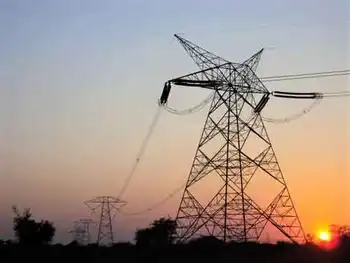Rates are not equal to cost of electricity
HOUSTON, TEXAS - Reliant Energy's stock plummeted 25 percent after the company reported $267 million in losses during its third quarter.
While analysts expected the company to report a large expense related to a settlement over Reliant's alleged role in the California energy crisis, it was the unexpected that jolted the market.
In a conference call with analysts, the company revealed that its Texas electricity rates were failing to keep pace with volatile energy prices.
Reliant reported a loss of 88 cents a share for the third quarter, compared with a profit of $75 million, or 23 cents a share, for the same period a year before.
The company's stock price fell $3.19 to close Tuesday at $9.51 after Reliant reported what analysts already knew - that its net income would be shaved by the cost of settling a claim that alleged it contributed to the energy crisis that caused rolling blackouts in California in 2000-2001.
The company admitted no wrongdoing in agreeing to the settlement, which resulted in a $217 million charge in the quarter.
But what caught analysts off guard was the statement that the company is selling energy to Texas customers at a price below its costs, sparking concern over a long-term outlook.
"Essentially what they've done is they've done a huge disservice to the shareholders in favor of their residential retail price-to- beat customers," said to Lasan Johong, of RBC Capital Markets in New York. "By setting the residential prices so low, they are going to cause a $100 million loss to their shareholders in just the first quarter of 2006."
The price of electricity Reliant buys from power producers is largely based on the price of natural gas, which has risen dramatically, in large part because of an unusually active and destructive hurricane season.
Joel Staff, chairman and chief executive officer of Houston- based Reliant, told analysts in a conference call that the company expected year-end profit will come in at the low end of forecasts, which is around $650 million. The top end of the range is $850 million.
Another problem reported recently were losses resulting from hedging - trading strategies that are supposed to reduce the risk of price volatility. Reliant reported a $115 million hedging loss related to Pennsylvania power plants.
"The rapid rise in natural gas prices presents near-term challenges for effectively hedging our wholesale business and for the retail business during its transition to full competition," Staff said.
Those losses come directly from sales to Reliant's customers in Houston. And while the city's largest power provider already has raised its residential prices by 14 percent for October - and plans increases in January and March for a total of 25 percent - it says it still cannot keep up with the rising prices it pays for energy.
Also, after the devastation from the hurricane season, Reliant agreed with state regulators to slow the phase-in.
"They should have put up a harder fight," Johong said. "In other words, my understanding is that they caved to the request of the governor without putting up much of a fight."
Reliant said it had little choice.
"We realize that absorbing a 25 percent increase in electricity prices is difficult for consumers to bear, and we wanted to work with the public utility commission and elected officials in the state to try to mitigate the impact of that and phase in the effect of natural gas price increases over time," Reliant spokeswoman Patricia Hammond said.
Related News

Enbridge Insists Storage Hub Lives On After Capital Power Pullout
ALBERTA - Enbridge Inc., a Canadian energy giant, is digging its heels in on its proposed carbon capture and storage (CCS) project in Alberta. This comes despite the recent withdrawal of Capital Power, a major potential emitter that was expected to utilize the CCS technology. Enbridge maintains the project remains viable, but questions linger about its future viability without a cornerstone anchor.
The CCS project, envisioned as a major carbon capture hub in Alberta, aimed to capture emissions from industrial facilities and permanently store them underground. This technology has the potential to play a significant role in reducing greenhouse gas…




